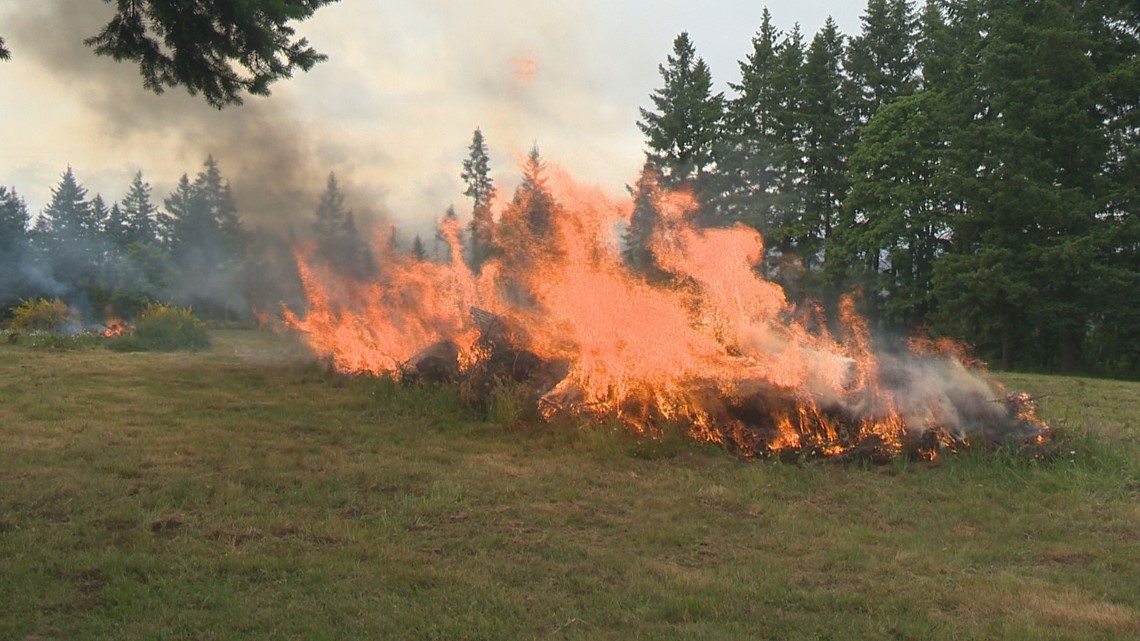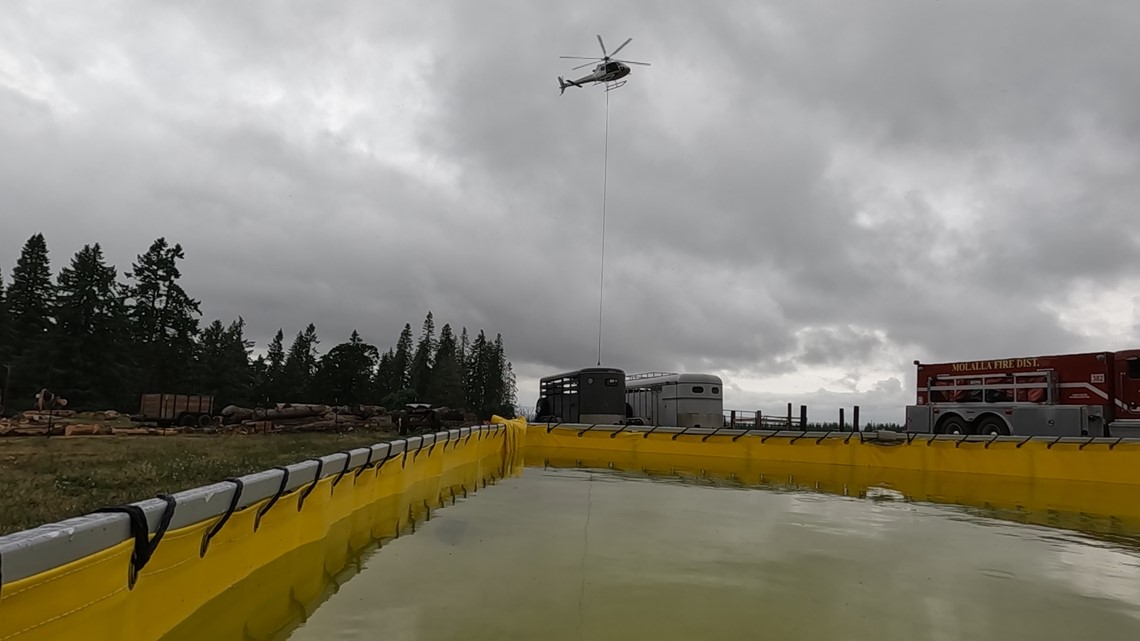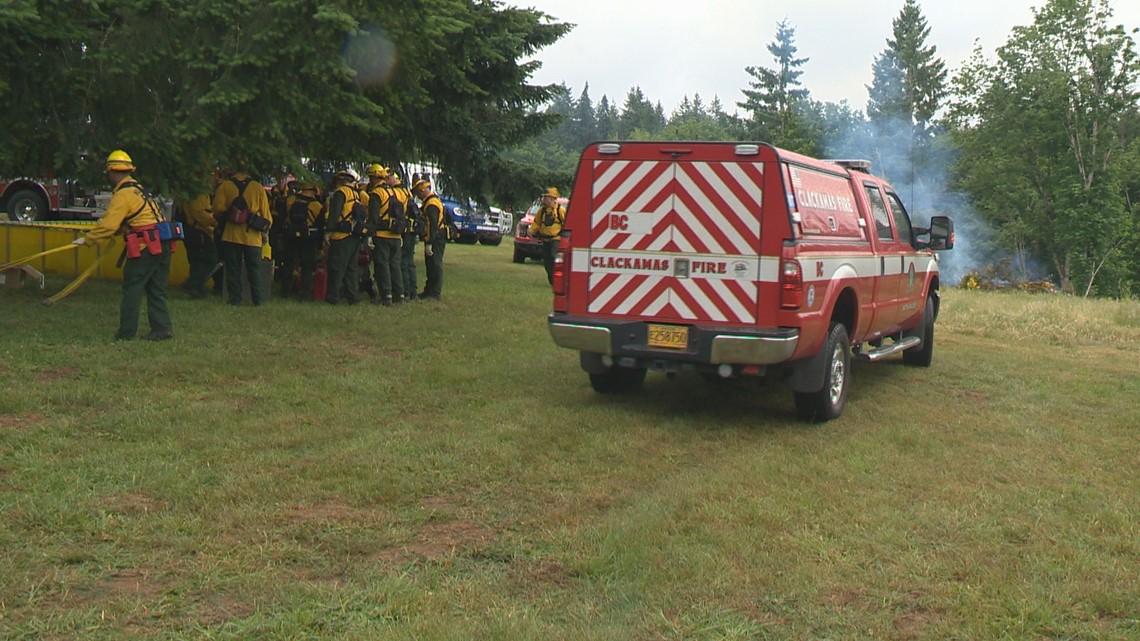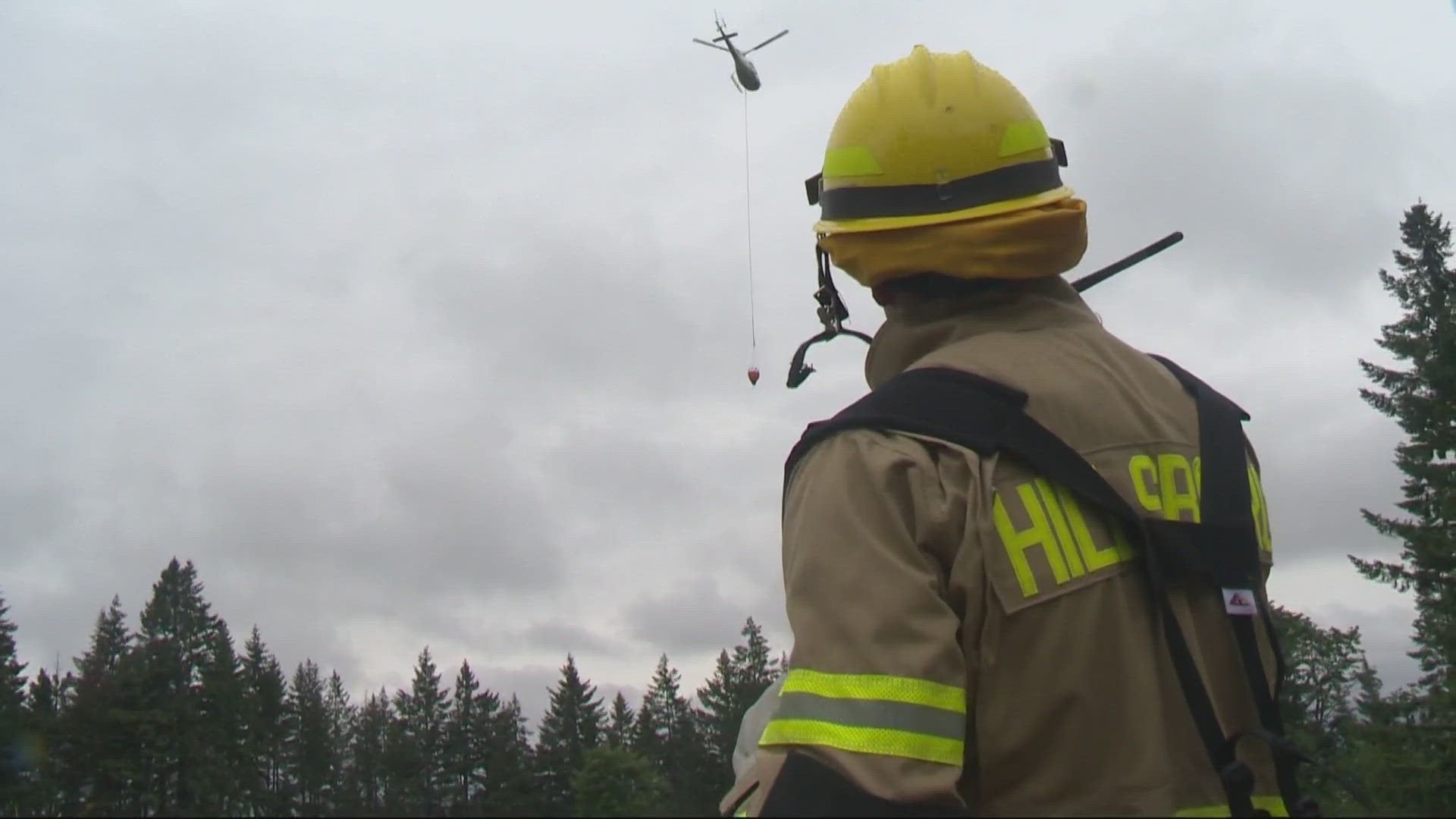MOLALLA, Ore. — Summer is basically here, and unfortunately that means wildfire season is too.
“It’s one thing to talk about fire, it’s a whole different thing when you’re faced with it,” said Philomath Fire & Rescue Deputy Fire Chief Rich Saalsaa. “If anything, the last 10 years, it's taught us we used to be deployed on four and seven-day conflagrations before. Now they're 14 and 28 days.”
It’s a big reason why firefighters from the Willamette Valley and Portland metro area are meeting in Molalla on June 9-10. It’s the 12th annual Metro Advanced Wildland School (MAWS).
A total of 125 firefighters from 25 different agencies are sharpening their skills in a controlled environment. It’s designed to get structural firefighters familiar with wildland techniques.
“Out in the wildland, out in a forest, if we don't have ready water sources there…out there, it's you and your shovel and your axe, and be able to basically cut a line to stop the forward progress of the firewall,” Saalsaa said.


The MAWS training provides opportunity to see how fire behaves in certain conditions and more importantly, how to put it out.
“I think the challenge is always just not knowing necessarily when things are going to happen just knowing that when it does, it generally happens in a very big way,” he added.
Some of the techniques practiced on Friday were use of hand tools, radio communications with a helicopter doing water drops, triaging homes, and extinguishing live fire.


“This training brings in resources from the whole Willamette Valley and beyond area and allows us to really get some hands-on training that we wouldn't get during the rest of the year for a lot of wildland urban interface, conflagration, deployments, even things that we'll be doing in our own districts and beyond,” said Keizer Fire District Captain Rachel Brozovich.
Brozovich anticipates another busy fire season. Getting these teams together now can make a big difference when it’s the real thing. The training helps gain experience and also complete certifications required to respond to fires in Oregon and other neighboring states.


“We really rely on our neighbors throughout the whole year. And it's important for us to get those interactions again in these lower stress situations before we go out on emergencies with our neighbors,” Brozovich said.
“We're always using our feedback and what happened in the last season to improve our practices and really develop those performance measures that we can take to do our best in the next season.”

